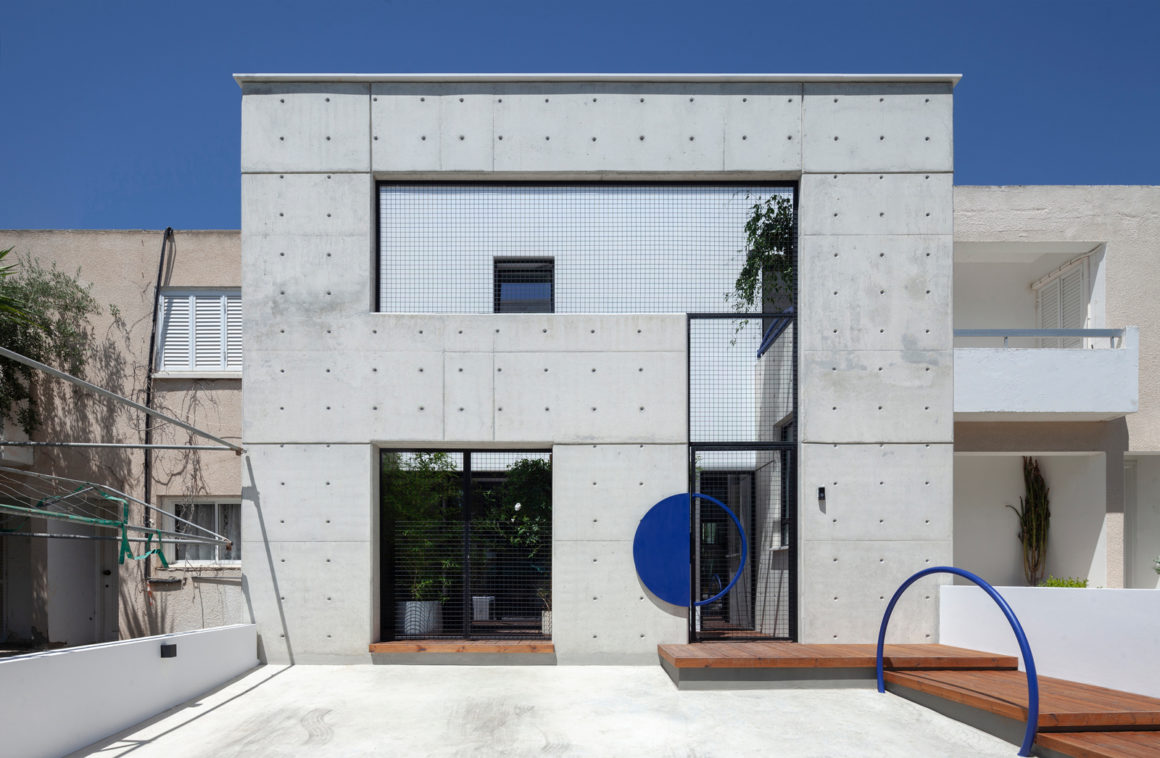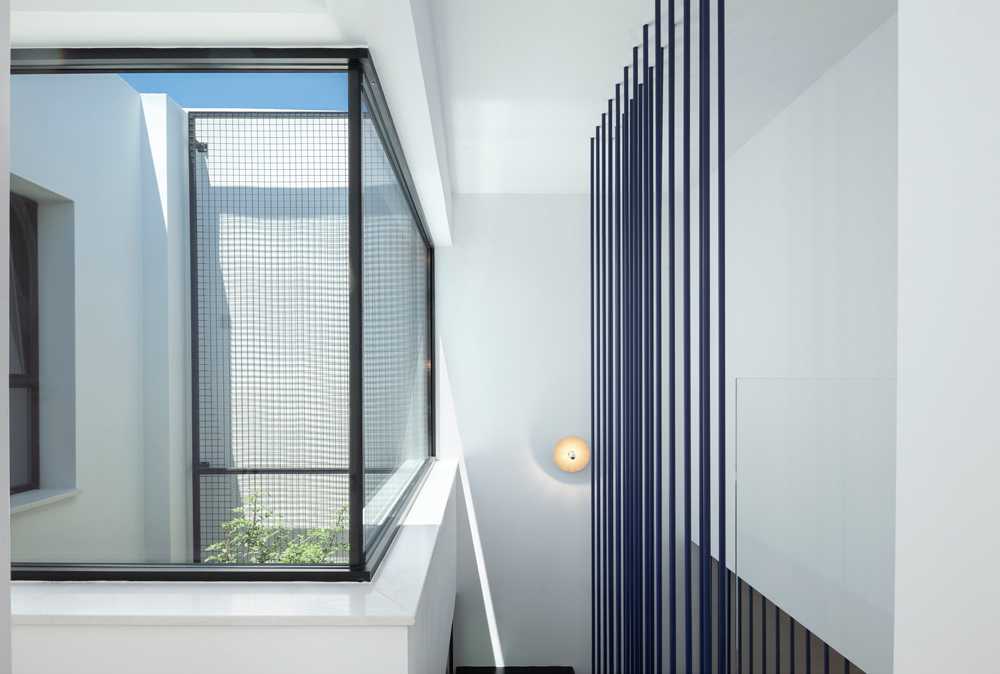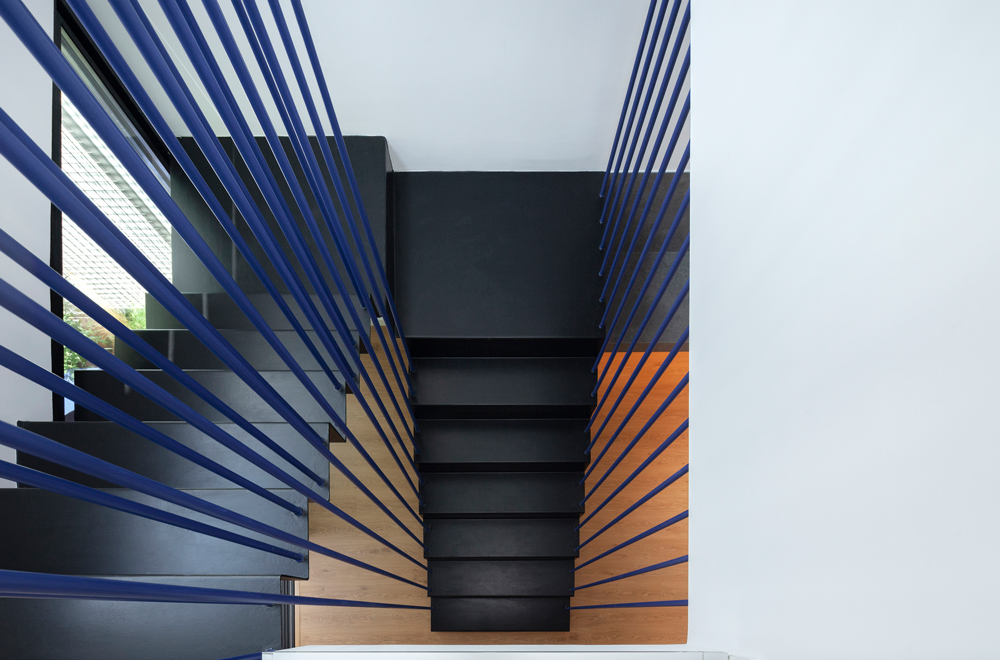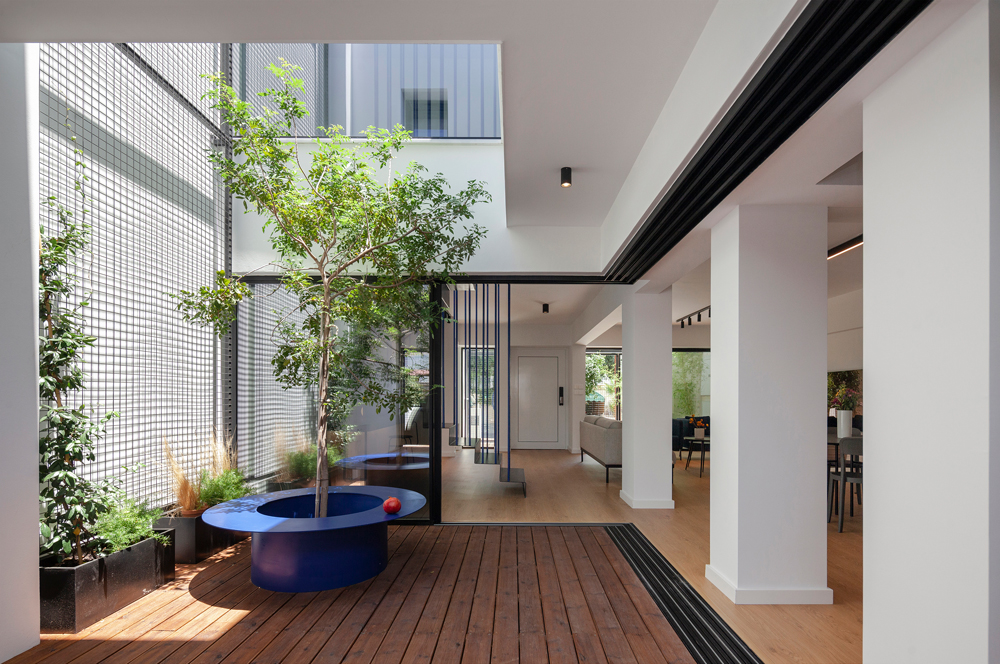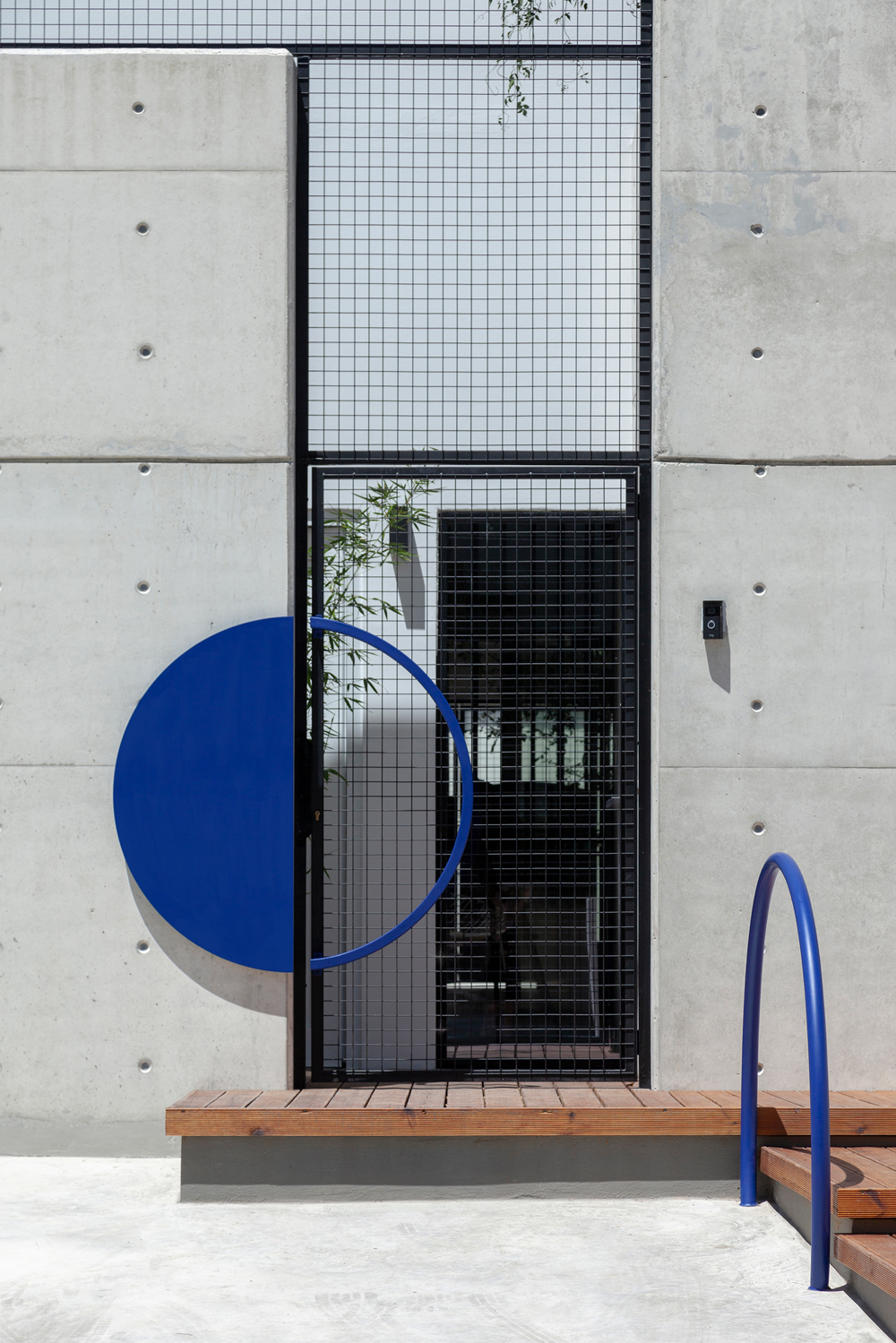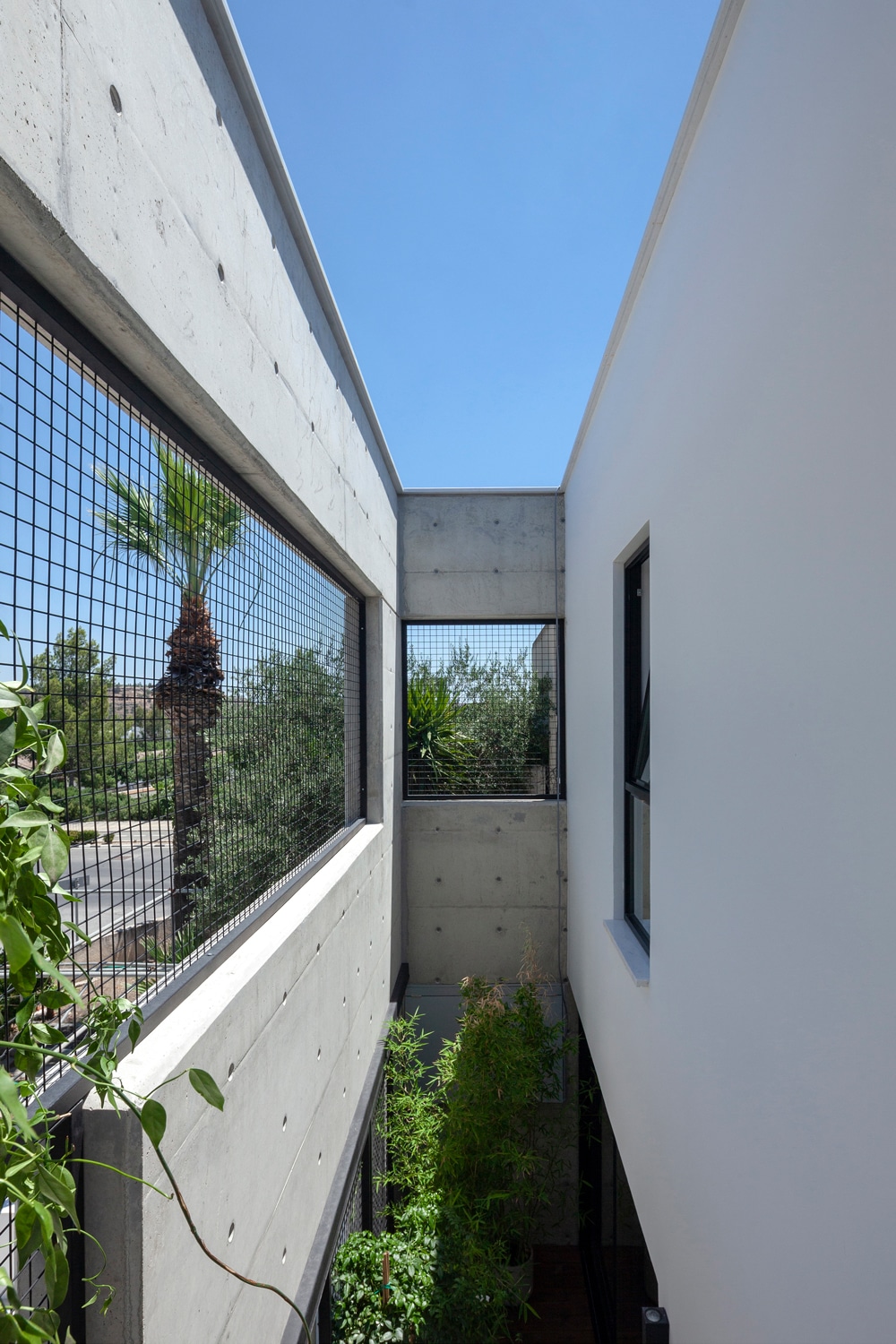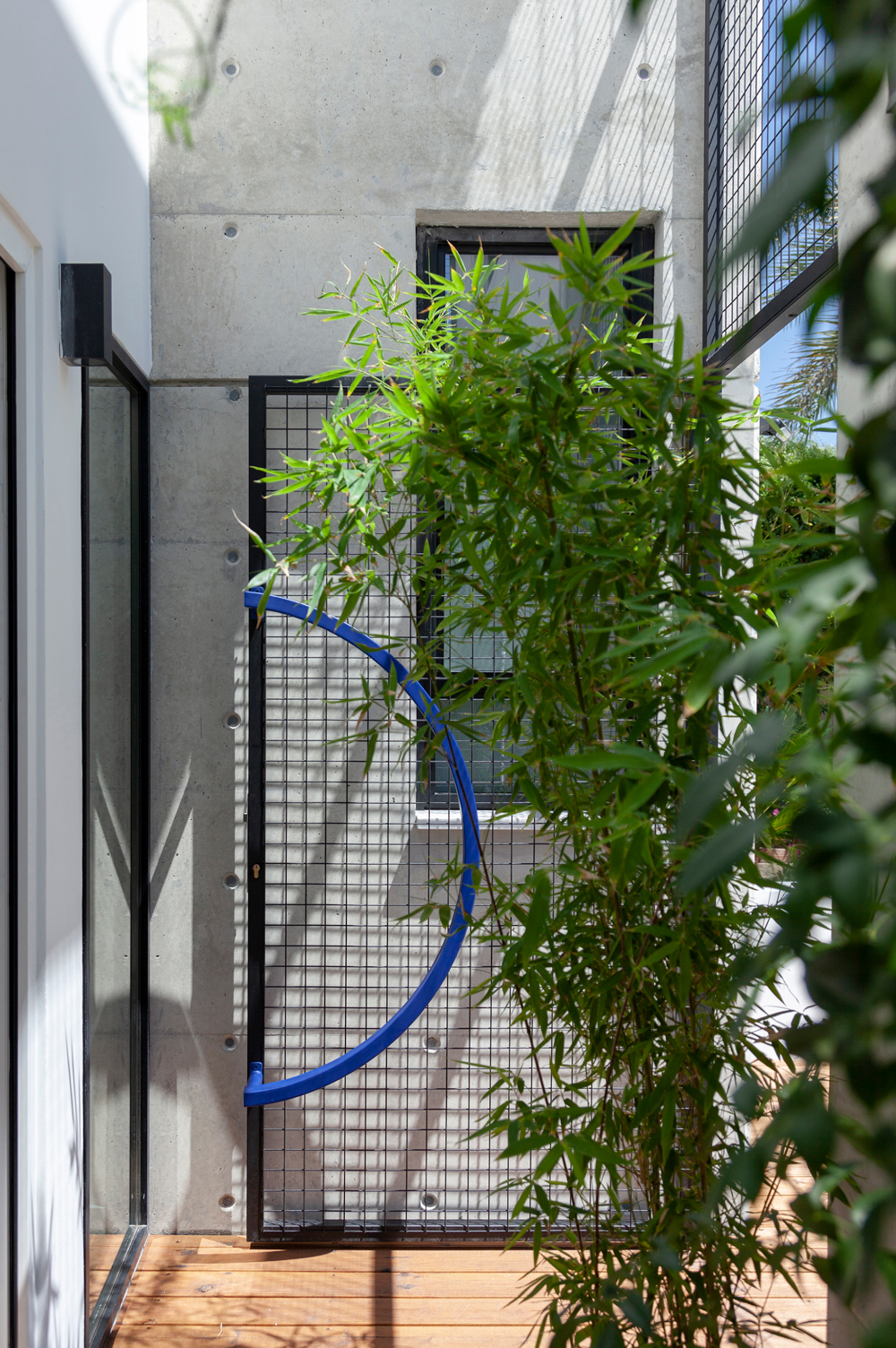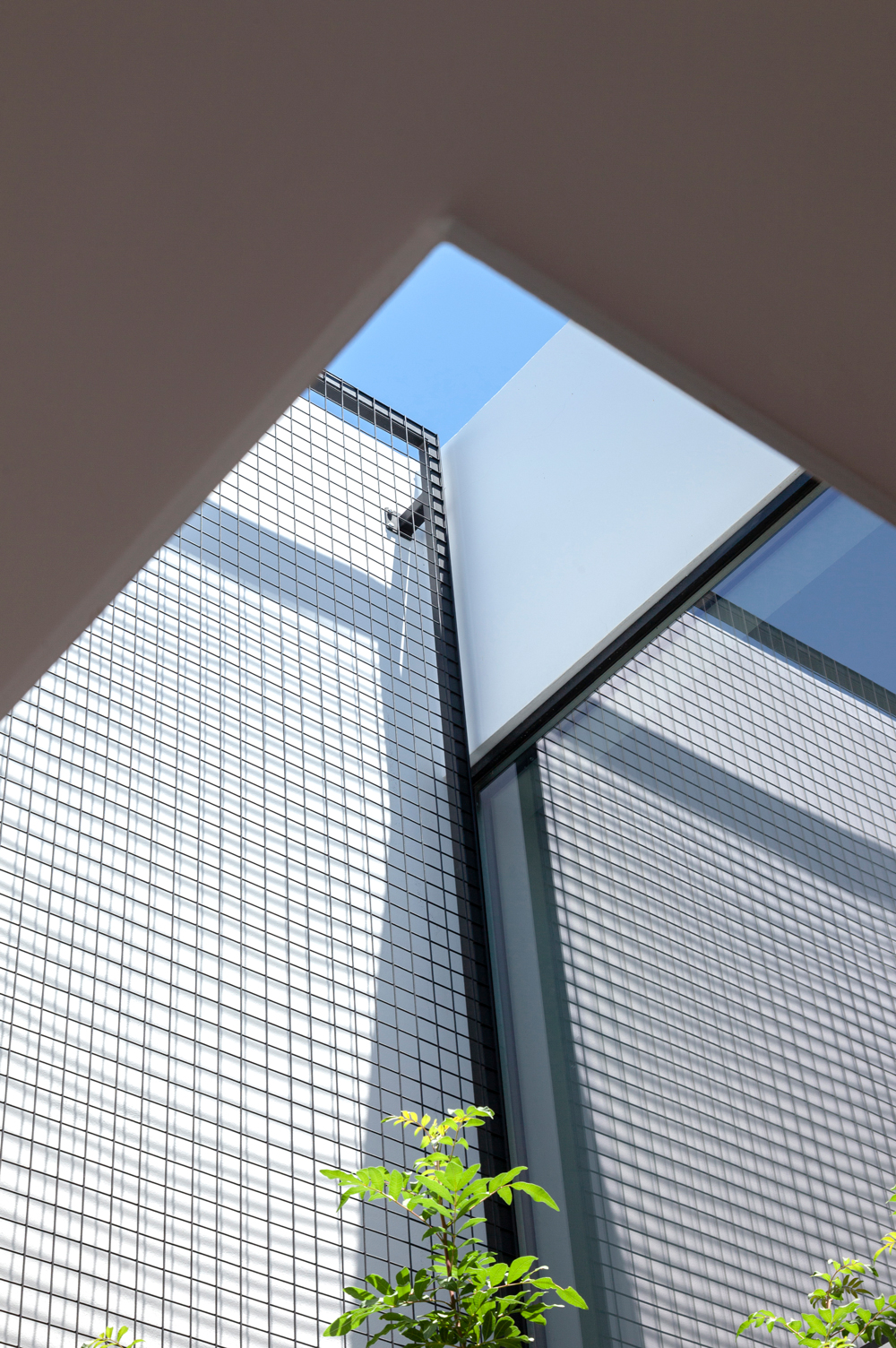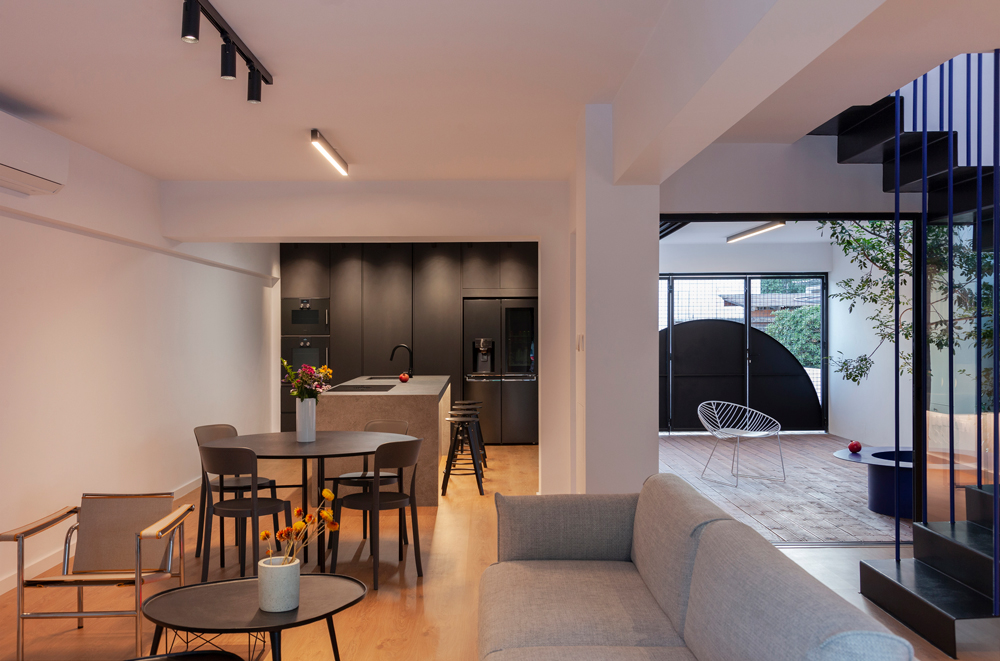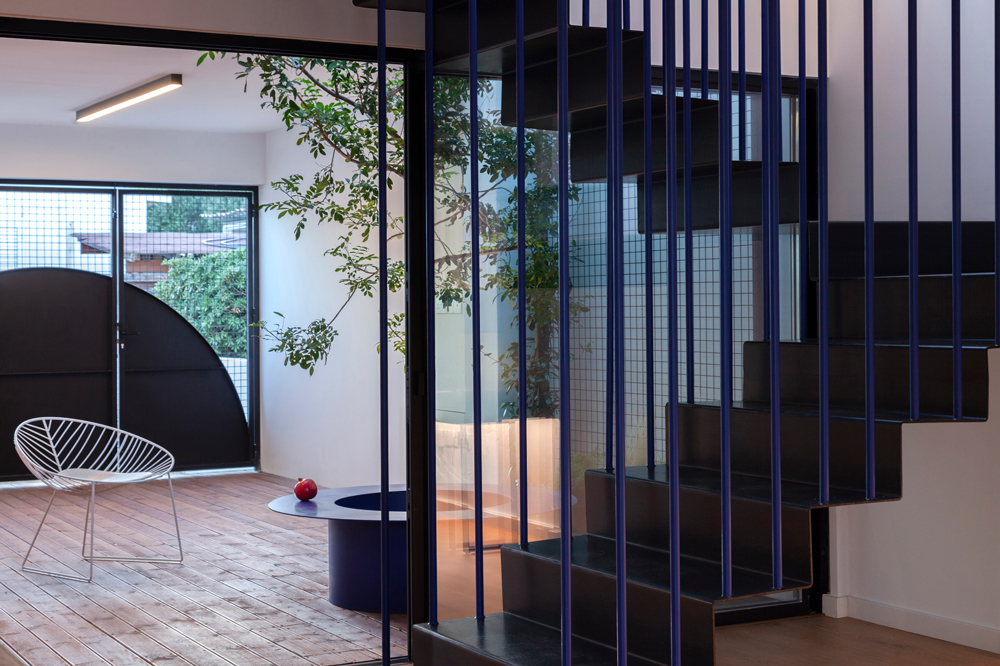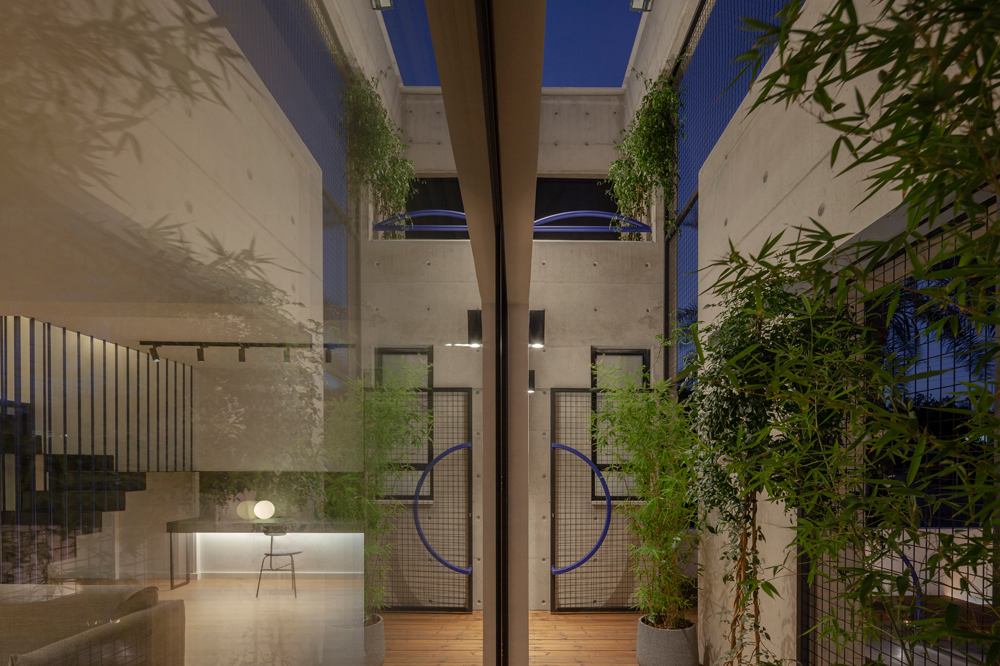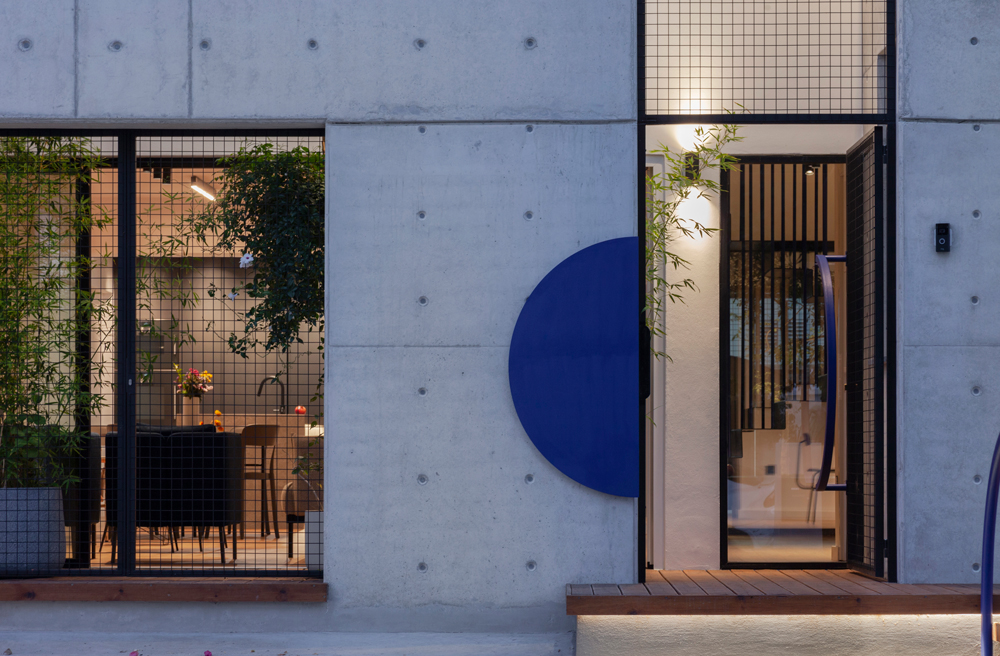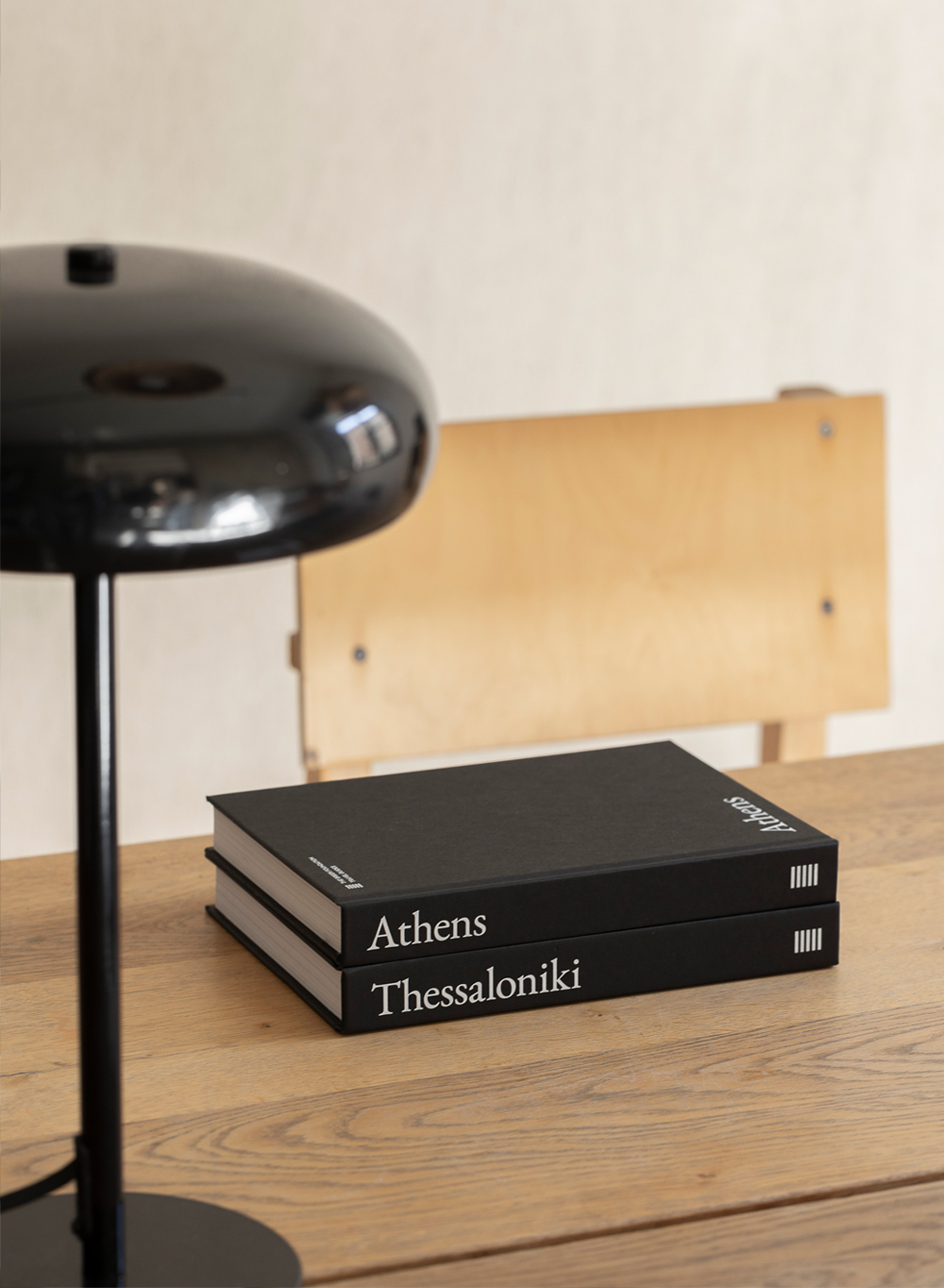Located in a high-density refugee settlement in Nicosia, Cyprus, the house is built between two existing partition walls on a narrow land (189 m²). Constructed to accommodate the housing needs of a young family of four, Domus Laetitiae is developed around the notions of boundary and intermediate space. The design team proposes a vertical boundary that stands at a distance of 1.3 meters in front of the existing housing complex. This is a 6.3 meters high wall of exposed reinforced concrete, carved with holes in its skin which are covered by perforated metal surfaces.
As the architect describes, the successful interplay between the blank and structured parts of the wall purposefully controls the passage of light inside the house and offers levels of privacy and security, cross ventilation, and a variety of optical escapes. An open dialogue is developed between the building and the existing urban landscape that offers a vast range of spatial and visual conditions. Small courtyards and terraces are generated between the main building and the vertical wall, where the house’s main spaces are extended. The interiors are organized in relation to the vertical wall and a courtyard that enters from the back of the ground level to end up in the center of the house. At the core of the house, mass was removed from the volume of the building by vertically carving it. In this way, visual communication between the two floors, provision of abundant daylight, and framing of the sky are achieved. In the center of this blank space, a mastic tree is planted, framed by a circular seating surface transforming it into a vital place for gathering and communication between family members. As in the rest of the outdoor spaces, the void is filled with metal surfaces allowing natural vegetation to climb. Cypriot plants such as jasmine, honeysuckle, and pandorea have been carefully preserved or transplanted in all outdoor spaces. The refreshing nature enters the house and climbs upon its skin in an everyday life that embraces the garden and turns towards it.
